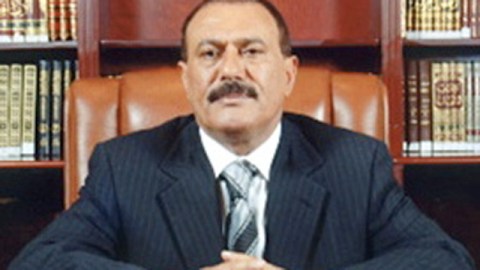Election Fever

Everyone in Yemen is catching it. Early last week, seven ministers and two deputies resigned their posts so that they could compete in the upcoming parliamentary elections scheduled for April.
The elections were originally scheduled for 2009, but were delayed two years when the ruling-party and the various opposition couldn’t come to an agreement. A key sticking point was a series of amendments that the opposition umbrella group the JMP – which is an eclectic group of socialists, Zaydis, and Islamists – proposed. The amendments were based on an EU report following the 2006 presidential election.
The ruling party said thanks, but no thanks. And here we are. Two years later and still no deal.
The opposition again is threatening to boycott. But they’ve already played that card and I don’t think they can do it again. (Here is an article detailing that aspect of the mess.)
Which is why the resignation of the nine ministers and deputy ministers mentioned above is so important. Most of these individuals are quite close to President Ali Abdullah Salih either politically or through family ties. Indeed some are relatives of his.
One of the most interesting resignations is Rashad al-Alimi, the deputy prime minister for security affairs. This is the same individual, who was quoted in a wikileaks-released document joking that he had just “lied” to parliament, when he told them the missiles used to attack a suspected al-Qaeda hideout in Abyan where Yemeni and not American.
Late last week – just a few days after the deputies resigned – a bill was introduced in parliament, which would, among other things, end term limits for the president, allowing President Ali Abdullah Salih to seek reelection in 2013.
Now how can a president who has been in power since 1978 be term-limited out. Well, let me tell you. First, the initial 12 years of his rule (1978 – 1990) didn’t count, because he was only president of North Yemen. So when North and South Yemen unified in 1990, he began playing by a different set of rules.
Then, there was technically a presidential council, of which Salih was chair from 1990-1993, and then again from April 1993 on. But of course the there was that civil war in 1994 when his vice president (or rather vice chair of the presidential committee – it loses some of its ring) attempted to secede. Salih was then confirmed by parliament as president, but didn’t actually stand until 1999.
And that is when the clock started running on his two terms. One in 1999 and then another when he was re-elected in 2006. That is how a president who has been in power for 33 years can have only 14 of them count against him.
But that looks to be a mute point now, as parliament, which is heavily dominated by members of Salih’s GPC party, is already debating the constitutional amendments that would allow Salih to seek reelection in 2013.
Both moves are the clearest signals yet that Salih and the GPC are going to go ahead with the elections on April 27, 2011 – which will incidentally be the 9th anniversary of the beginning of the 1994 Civil War – with or without the opposition.
US calls to hold off on the amendments have already been shouted down.
The only question that remains is what will the opposition, particularly Hamid al-Ahmar do?
President Salih made two quick moves late last week. Now it is up to al-Ahmar and his advisers. What to do? What to do?





